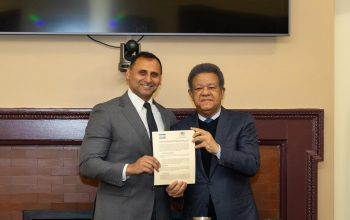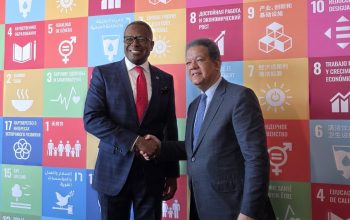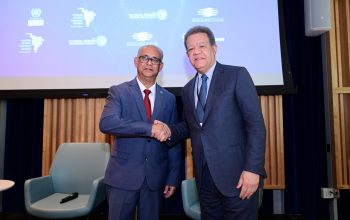news
GFDD Attends UN Briefing Session on the Ebola Outbreak
November 13, 2014
On Thursday November 12 2014, a meeting was held at United Nations (UN) Headquarters in New York to discuss the current status of the Ebola outbreak, in the presence of Dr. David Nabarro, UN system Senior Coordinator for the response to Ebola Virus Disease. GFDD staff was in attendance to report on the findings.
Moderating the discussion, Mr. Ramu Damodaran, Deputy Director for Partnerships and Public Engagement in the United Nations Department of Public
Information’s Outreach Division introduced Dr. Nabarro explaining that he was appointed to his current functions by the UN Secretary General effective August 11, 2014.
Pointing to the fact that nearly half the global population finds itself emotionally connected to ebola, Dr. Nabarro illustrate the global reach of the outbreak. Indeed pointing to the response by civil society he stated that 2 to 3 million people have joined civil society organizations since the
start of the crisis to help combat the problem.
Turning to the medical aspects of the virus, Dr. Nabarro stressed that, although it is infectious, provided proper precautions are adopted infection cannot
take place.
He explained that we do know is that the virus moves from one person to another through body fluids. This includes vomit, faeces or even saliva. Therefore provided someone can protect him or herself from contact with the body fluids of an infected person, then he/she will not get infected. The disease can therefore only be transmitted through close physical contact
(i.e. less than 1 meter apart).
Dr. Nabarro confirmed that the first country to be affected was Guinea, having had waves of infection. Today the disease is particularly prevalent in certain regions of two other countries – Liberia and Sierra Leone, which are still considered difficult hotspots.
Stressing the importance of this outbreak, Dr. Nabarro explained that 80% of the economic and social consequences of the outbreak are linked to fears about it,
mostly amplified by the media.
The UN’s response has been to set up a dedicated mission to combat the disease called the UN Mission for Ebola Emergency Response (UNMEER – http://www.un.org/ebolaresponse/mission.shtml) which aims to respond to the immediate needs related to the fight against Ebola, by working with governments, private sector organizations and civil society to
ensure vital services, such as food supplies are sent out from capitals to regions affected by the disease. The UN Secretary-General has also partnered with the President of the World Bank to ensure that both organizations join efforts and create one simplified process for combatting the disease.
Dr. Nabarro also stressed that contact tracing (of
Ebola stricken individuals) and safe burial sites were key to the medical response on the ground in order to prevent the escalation of the outbreak.
Furthermore, he explained that in addition to the medical response translated through the establishment of new UN treatment centers, he emphasized the importance for the international community to show solidarity to
healthy people travelling from Ebola stricken regions and not discriminate them because of fear of the disease.
Pointing out that the outbreak was “more than just a health issue”, Dr. Nabarro stressed that it is “deeply affecting societies, economies and governments”. He pointed out that the UN is working closely with UNICEF to ensure that orphaned
children are taken care of and that the international community begins to actively plan for the economic recovery of affected countries.
On a positive note, he confirmed that a slowing of the outbreak had been observed in certain regions such as Nigeria and Guinea, however he stressed that there was a clear “need to maintain the effort to the point
that transmission is stopped and countries are on the way back to recovery”.
Concluding his statement he stressed that re-establishing public health on a national level was vital not only for productivity, but also as source of security and a source of investment.
Within the Dominican Republic, no case of Ebola has yet been reported. The country has joined other Caribbean countries and issued a travel ban restricting travelers from West
African nations dealing with Ebola outbreaks. The ban applies to travelers in those countries in the past 30 days, according to Dominican Health Minister Altagracia Guzman.
Related links:
http://www.un.org/ebolaresponse/mission.shtml
http://www.who.int/csr/disease/ebola/en/







